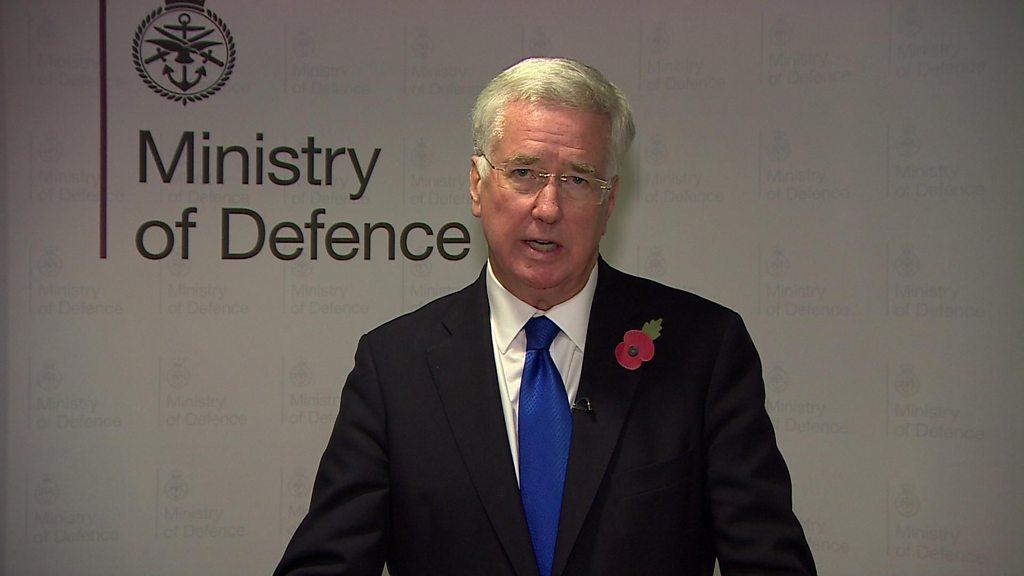Profile: Sir Michael Fallon
- Published
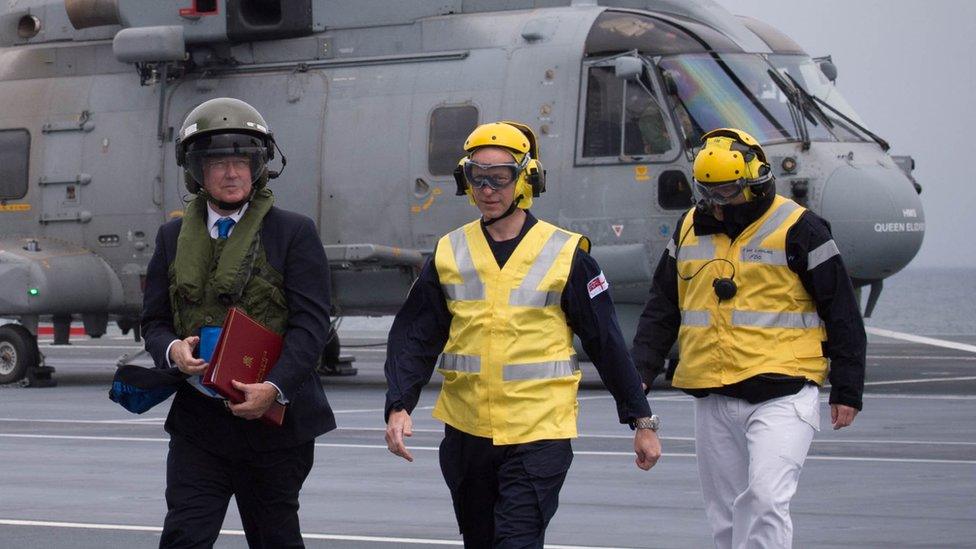
Sir Michael, with a reputation for being unflappable, earned the title of Minister for the Today programme.
He was considered Mr Reliable, surviving three decades on the political frontline and serving under four Conservative prime ministers.
But it was a hand on the knee 15 years ago that proved to be the beginning of the end for Sir Michael Fallon.
Amid a flurry of revelations of sexual harassment and inappropriate behaviour in the political world - themselves prompted by the Harvey Weinstein allegations - he confirmed he was rebuked by journalist Julia Hartley-Brewer for touching her knee during a dinner in 2002.
A day later he became the first politician to resign in a scandal that looks set to dog Westminster, acknowledging "what might have been acceptable 15, 10 years ago is clearly not acceptable now".
The Conservative MP entered office when Margaret Thatcher was prime minister in 1983, and for more than 30 years he worked his way up the ranks of the party.
His time as defence secretary was characterised by his role overseeing UK military efforts against the so-called Islamic State in the Middle East.
With a reputation for being unflappable, he earned the title of Minister of the Today programme.

Who is Michael Fallon?
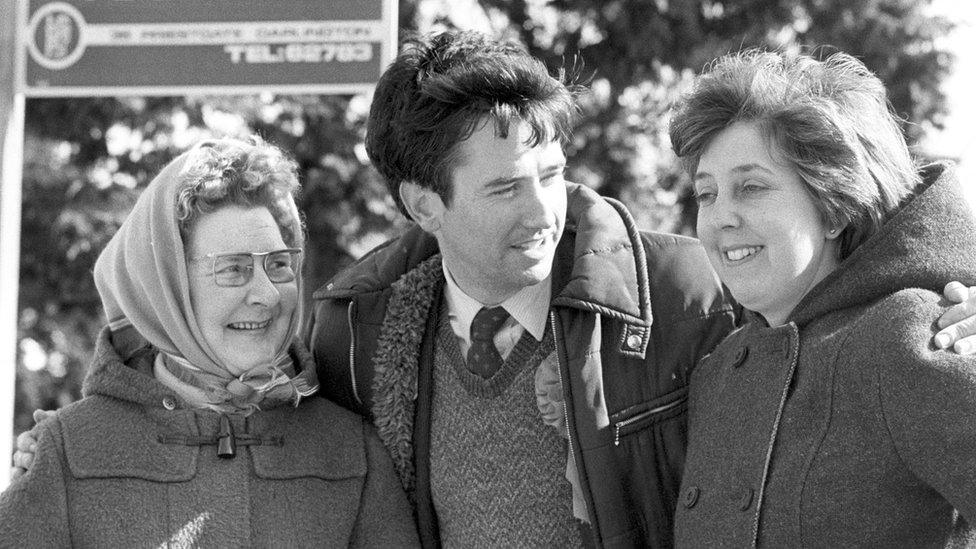
Michael Fallon campaigning during the 1983 Darlington by-election
Date of birth: 14 May 1952 (aged 65)
Job: MP for Sevenoaks, Kent, since 1997. Defence secretary from July 2014 to 1 November 2017
Education: Privately educated at Epsom College, in Surrey; Studied classics and ancient history at the University of St Andrews
Family: Married to Wendy Payne. The couple have two sons
Honours: Knighted in 2016 in David Cameron's resignation honours

Like many of his peers, he came to Parliament first as a researcher in the late 1970s.
In 1983 he unsuccessfully fought a by-election in Darlington, only to win it 77 days later after Mrs Thatcher called a general election.
Four years later, he was serving as private parliament secretary to Energy Secretary Cecil Parkinson, before becoming a minister in the education department in July 1990.
That autumn, when pressure was mounting on Mrs Thatcher to resign, Sir Michael was among a group of supporters, alongside Michael Portillo, who tried to persuade the long-serving prime minister to stay on.
John Major took over as prime minister and kept Sir Michael in his government.

Sir Michael in his own words
Sir Michael Fallon: "Not right for me to go on as defence secretary".
"I accept that in the past I have fallen below the high standards that we require of the Armed Forces that I have the honour to represent," written in his resignation letter.
"This election shows that Labour is now a serious risk to our national security, to our economic security and to the security of your family," speaking in September 2015.
"It is through the EU that you exchange criminal records and passenger records and work together on counter-terrorism... We need the collective weight of the EU when you are dealing with Russian aggression or terrorism. You need to be part of these big partnerships," making his case in February 2016 to remain in the European Union.
"We must always be ready to answer the call from further away, from fragile democracies, from the very poorest, from the hardest hit. That means deploying our ships, our planes, and yes, our troops on the ground where we and our allies are asked to help." In his 2017 Conservative Party conference speech.

But his political career stalled when he lost his Darlington seat to Labour's Alan Milburn in the 1992 General Election.
After leaving the House of Commons, he founded a group of children's nurseries called Just Learning.
But he bounced back in 1997 as MP for Sevenoaks, although his party were now out of power with Tony Blair's Labour Party running the country.
It was another 13 years before the Conservatives returned to power - Sir Michael was one of a limited number of ministers from the Major years to return to the front benches.
He was made deputy chairman and given a number of ministerial posts before being handed the defence brief in 2014.
Sir Michael was seen by his party as a good media performer, and was often the person trusted to appear on TV and radio at difficult times.
Amid the turmoil of two difficult general elections and the EU referendum - and the changes of prime minister that followed - he remained as defence secretary.
That was, until he decided to resign on Wednesday evening.

What others say
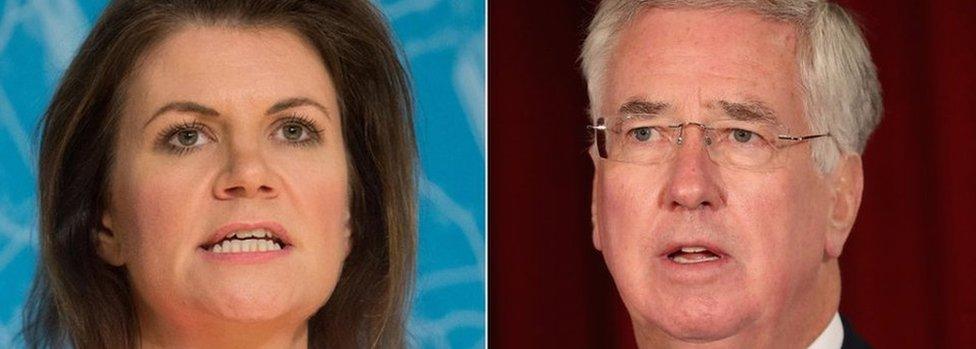
Julia Hartley-Brewer says she has a good, friendly, bantery relationship with Sir Michael
"I like Sir Michael Fallon, I have always got on very well with him and… I have always had a good, friendly, bantery relationship [with him], which is why I didn't take the issue seriously at the time and haven't since." Julia Hartley-Brewer
"You have championed our brave armed forces. You should take particular pride in the way the United Kingdom has risen to the challenge of tackling the barbaric threat of Daesh." Theresa May, in a written reply to his resignation letter
"Michael Fallon is a decent man. But today I think he has demeaned himself and he has demeaned his office." Former Labour leader Ed Miliband, who Sir Michael accused of stabbing his brother in the back and suggested he was also willing to stab the UK in the back.
"Michael Fallon stood up and promised he would not cut our Army below 82,000. Now he's been left red-faced as that promise lies in tatters." Lib Dem peer Lord Paddy Ashdown, a former Royal Marine, in June 2017.
"Defence is a complicated portfolio to master and spending a bit of time in that appointment is really, really important to be able to understand the detail, the personality and the needs of the Army, Navy and the Air Force, and he'd got that." Lord Dannatt, chief of the general staff - the head of the Army - from 2006 to 2009.
- Published1 November 2017
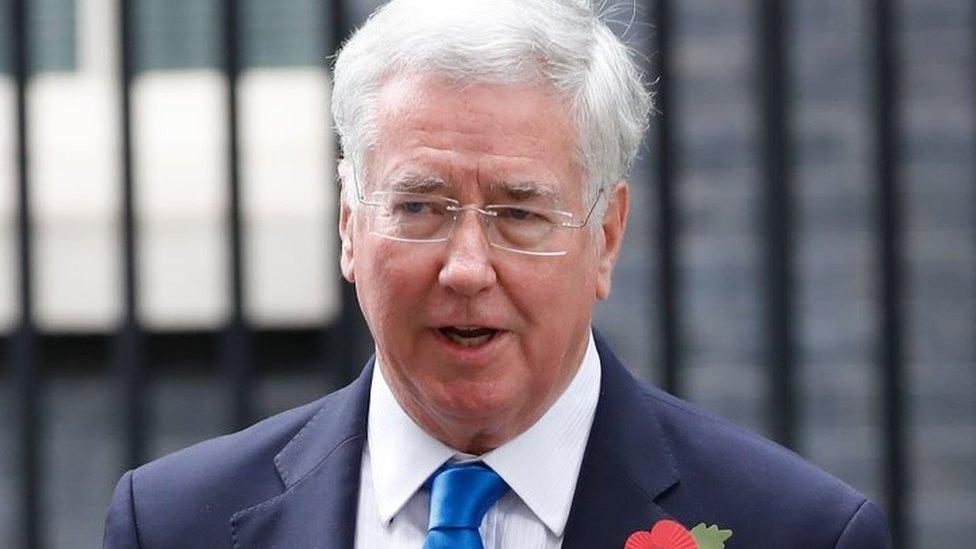
- Published1 November 2017
- Published1 November 2017
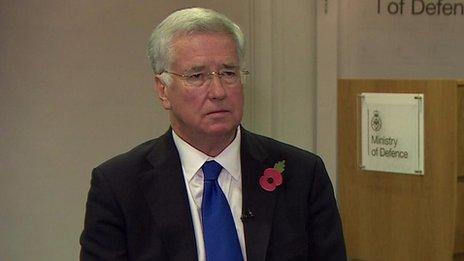
- Published1 November 2017
